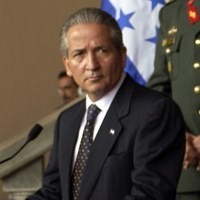Panamá (Panamá), 1946
By Fernando Antonio da Costa Vieira
Son of Panamanian businessmen who settled in Honduras in the late 1940s, Ricardo Rodolfo Maduro initially worked in the private sector as an executive for multinational companies based in the country. During the government of Rafael Callejas Romero (1990-1994), he took over the leadership of the Central Bank of Honduras, advocating for neoliberal measures. His political career emerged as a response to a tragic family incident: his son, Ricardo Ernesto, was kidnapped and found dead on April 25, 1997. In the wake of this, Maduro delivered a strong speech in favor of law and order and combating banditry in the country. His speech earned him great popularity, particularly among disadvantaged sectors, who were the main victims of crime. His election was marked by controversy, as the Honduran constitution prohibited the election of candidates who were not born in the country. A commission formed by members of the National Party of Honduras (PNH) and the Liberal Party of Honduras (PLH), sponsored by President Carlos Roberto Flores, affirmed Maduro’s right to run, which was supported by the Honduran Congress in a session on March 12, 2001. In the elections of November 25, 2001, Maduro obtained 52.2% of the vote.
As president, until 2006, he sought to implement a strict economic austerity plan, with strong control over public spending. Additionally, he ordered a “zero tolerance” policy against crime, fighting the maras and controlling the borders to curb arms trafficking and drug trafficking. He also aimed to stimulate international capital investments in the maquiladora industry and tourism sectors.



